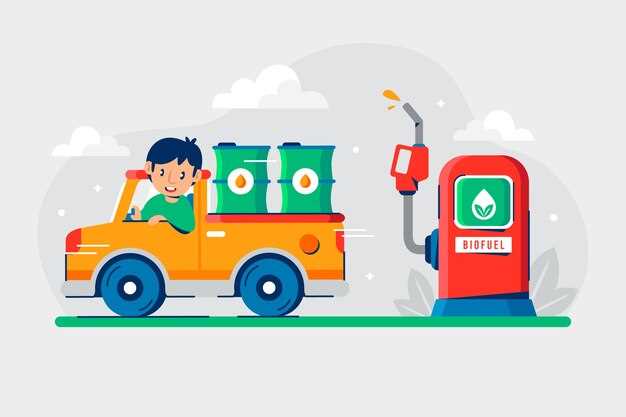
For many truck owners, fuel expenses represent a significant portion of their overall vehicle costs. With rising fuel prices and increasing concern over environmental impact, finding ways to save on gas is more important than ever. Fortunately, there are practical strategies that can help you maximize fuel efficiency without sacrificing performance.
In this article, we will explore a variety of tips tailored specifically for pickup truck owners. From simple driving adjustments to more involved maintenance practices, these suggestions are designed to help you cut costs and extend the life of your vehicle. Whether you’re using your truck for work, recreation, or daily commuting, these insights can make a meaningful difference in your fuel economy.
Join us as we delve into essential actions you can take today to improve your truck’s fuel efficiency. By implementing these tips, you not only save money but also contribute to a more sustainable future. Let’s empower you to drive smarter and more economically.
Optimize Your Driving Habits for Lower Fuel Usage

Adjusting your driving habits is one of the most effective ways to reduce fuel expenses for your pickup truck. Start by accelerating gently and maintaining a steady speed, as rapid starts and hard braking consume more fuel. Use cruise control on highways to help maintain a constant speed, which can enhance fuel efficiency.
Be mindful of your speed; driving at or below the speed limit optimizes fuel consumption. Higher speeds often lead to increased aerodynamic drag, causing your engine to work harder. Additionally, try to anticipate traffic flow to avoid unnecessary stops, which can lead to frequent braking and acceleration.
Minimize idle time whenever possible. If you expect to be stationary for more than a minute, it’s more efficient to turn off the engine, as idling burns fuel without providing any distance traveled. Avoid excessive use of air conditioning, especially during cooler months; instead, consider using the vehicle’s ventilation system or opening the windows when driving at lower speeds.
Plan your routes in advance to avoid heavy traffic and road work. Using apps that provide real-time traffic updates can help you find the most efficient paths. Combining errands into a single trip will also reduce the overall number of miles driven, further saving on fuel costs.
Lastly, be aware of your load. Carrying unnecessary weight or bulky items can affect your fuel efficiency. Remove any items from your bed that you do not need, and ensure your vehicle is not overloaded, as this also affects engine performance and fuel consumption.
Conduct Regular Maintenance to Improve Fuel Efficiency

Maintaining your pickup truck is essential for maximizing fuel efficiency. Regular maintenance not only helps prevent costly repairs but also ensures that your vehicle operates at optimal performance. A well-maintained engine burns fuel more efficiently, resulting in better mileage.
1. Change the Oil Regularly: Frequent oil changes are crucial for keeping the engine lubricated and functioning smoothly. Using the manufacturer-recommended oil type can also improve fuel economy. Check your oil levels regularly and replace it according to your vehicle’s service schedule.
2. Check Tire Pressure: Proper tire inflation significantly impacts fuel efficiency. Under-inflated tires create more rolling resistance, causing your engine to work harder and consume more fuel. Regularly monitor and maintain tire pressure at the levels specified in your truck’s owner manual.
3. Replace Air Filters: A clean air filter allows the engine to breathe freely, improving airflow and combustion. Dirty air filters can lead to decreased efficiency and increased fuel consumption. Inspect and replace air filters as needed to ensure optimal engine performance.
4. Inspect Fuel System: A well-functioning fuel system is essential for fuel efficiency. Regularly check for leaks or blockages in fuel lines and replace worn fuel injectors, as these can lead to improper fuel delivery and waste. Regular fuel system cleaning can also enhance performance.
5. Maintain the Exhaust System: An efficient exhaust system allows for better engine performance and fuel economy. Keep an eye out for rust or damage to exhaust components, which can lead to back pressure and reduce efficiency. Replace faulty parts promptly.
6. Check Spark Plugs: Worn or dirty spark plugs can hinder engine performance and fuel efficiency. Regularly inspect and replace spark plugs according to the manufacturer’s recommendations to ensure proper combustion and minimize fuel waste.
By investing time in regular maintenance and addressing these key areas, you can improve your pickup truck’s fuel efficiency significantly. Consistent care will not only save you money on fuel but also extend the life of your vehicle.
Utilize Technology and Apps for Fuel Management
Managing fuel expenses effectively can significantly lower costs for pickup truck owners. Utilizing technology and mobile applications designed for fuel management can provide valuable insights and strategies to enhance efficiency. Various apps can track fuel consumption patterns, helping identify areas for improvement.
One key benefit of these apps is their ability to log fuel purchases, monitor mileage, and calculate fuel economy. Users can input details such as price per gallon, odometer readings, and fuel type used. By analyzing this data, drivers can spot trends, such as spikes in fuel consumption, leading to informed decisions about driving habits and routes.
Route optimization apps are also invaluable. These tools help plan the most efficient routes, reducing unnecessary mileage and idle time. By integrating GPS technology, these apps provide real-time traffic updates, allowing drivers to avoid congested areas and select alternative paths, which can ultimately save on fuel costs.
Additionally, using fuel price comparison apps can lead to significant savings. These applications provide up-to-date information on fuel prices at nearby gas stations, enabling truck owners to fill up at the lowest prices available. Some of these apps even offer rewards or cashback options, further reducing fuel expenses.
Lastly, regular vehicle maintenance reminders can be integrated into these apps. Keeping track of maintenance schedules ensures that the vehicle operates efficiently, contributing to better fuel economy. By combining technology with good driving practices, truck owners can cut fuel expenses effectively.



